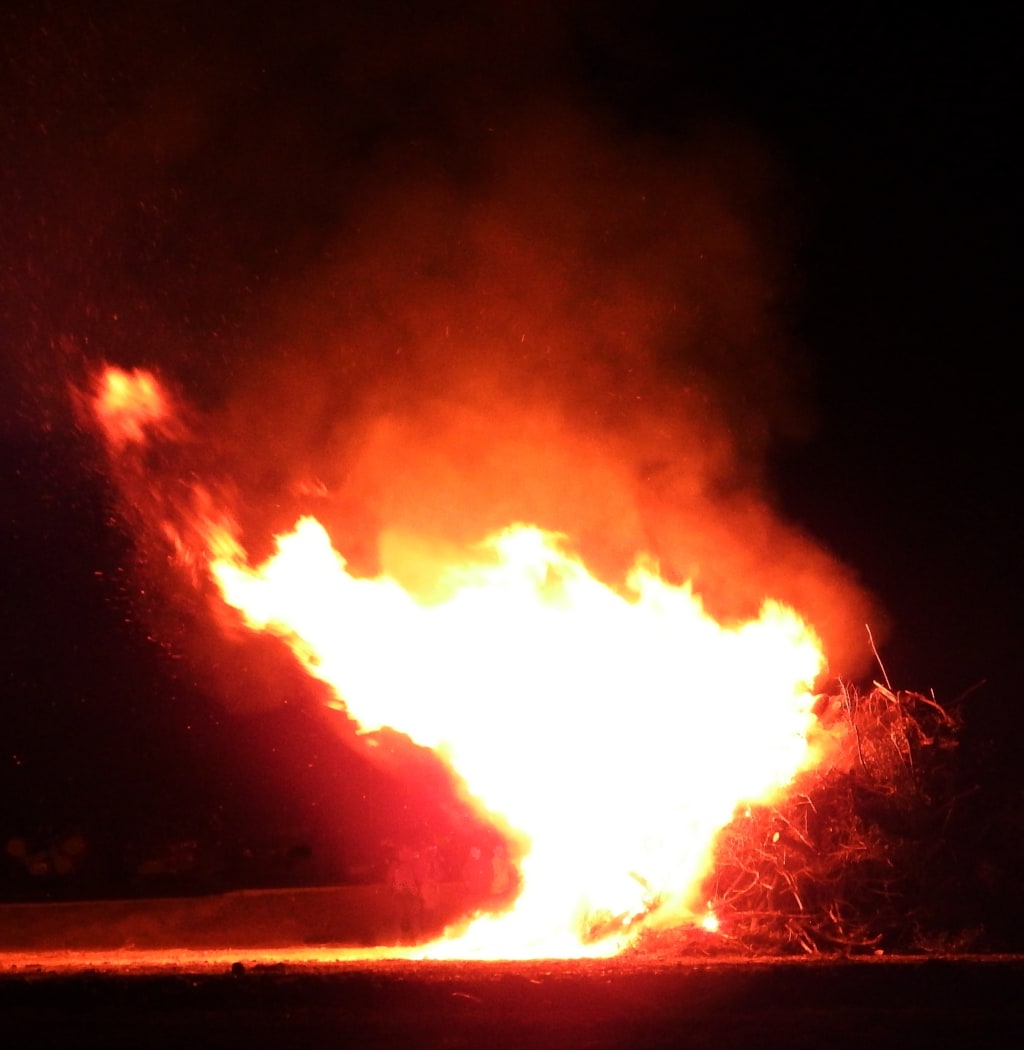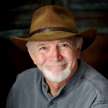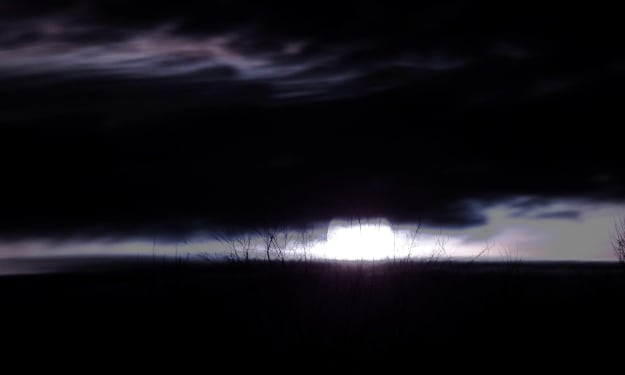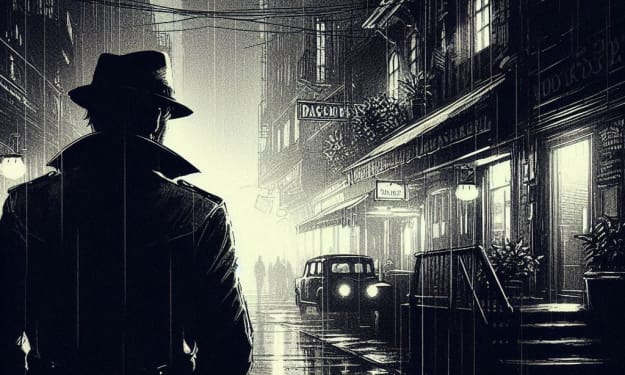My Treasure
The Spaniard and the Little Black Notebook

Detective Andre Duclair rushed past the frosted window and knelt on the rough fireplace bricks to ignite the kindling. Closing the spark-screen with trembling fingers, he stepped back and watched flames grow as he wriggled out of his soaking trousers.
Soon, a cheerful blaze was dancing in the firebox. The vigorous flames cast elongated shadows on the dark walls of the cabin. The interplay of light and shadow was alluring, but its beauty was lost on the freezing detective.
Seizing his grandmother’s quilt, he pushed her rocking chair toward the radiant fireplace and sat down. Tucked over his lap and around his bare legs, the quilted blanket evoked memories of the last time he’d found himself huddled next to Grandma Toussaint’s fire. He’d been six that year and careless. A shortcut across the frozen pond had seemed like a good idea that winter’s evening more than two decades ago, but the thin ice had other ideas.
“Will thee never learn, mon petit tresor?” Andre wondered aloud, echoing his maternal grandmother’s sentiment on the occasion of his boyhood dunking into the frozen depths of grandpa’s pond. Looking back, it seemed unbelievable that Grandma Toussaint’s little treasure had fallen through the pond’s undependable ice, not once, but twice. He’d gone in, up to the waist, at age six and then, moments ago, forgetting the pond which bisected the pathway to the isolated cabin, the thirty-year-old detective had crashed into the frigid water a second time.
Floundering and blaspheming, Andre had managed to extract himself. And, just as he’d done before as an ill-fated boy, he sprinted to the cabin, slipped on the icy steps, and shouldered his way inside. But this time, the hearth was cold and there was no welcoming grandmother to tug him out of his wet britches, scold him, wrap him in a warm quilt, and set him in front of a warming blaze.
There was only darkness, cold, and memories.
“I’ll leave the door unlocked,” the realtor had told the prodigal grandson when they spoke on the phone that morning. “There’s only the one key. I’ll leave it on the table for you to lock up and get back to me. You’ll find the cabin just as your grandmother left it. Sorry for your loss, she was a great lady. And, about that palm-sized notebook you’re seeking—you won’t find it on the inventory sheet I faxed over. I don’t doubt your grandmother’s letter, but if the book was ever there, I found no sign of it. But, like I said, you’re the detective, so you’re welcome to take another look. Well, anyway, good hunting,” she said.
As the cabin’s compact cuckoo clock struck the hour, Andre reached carefully forward, and unlaced the screen to add another log to the fire. Two hours in the cabin and he was no nearer to solving the mystery. His grandmother’s letter had been both familiar and enlightening. Familiar because it recounted a well-remembered story. How Andre’s maternal great grandparents, living in France during World War II, had survived the Nazi occupation. The enlightenment encompassed a new revelation—an unfamiliar story that his ancestors, residents of the picturesque coastal town of Royan, had befriended an eminent artist.
To the detective’s surprise, he learned that his forbearers had often encountered the famous Spaniard at a neighborhood coffeehouse. According to Grandma Toussaint, her parents regularly conversed with the man. Sitting at the same sidewalk table for hours, the industrious artist was seen to order bitter French espresso, doodle in his notebook, sketch rough ideas on paper napkins and sometimes—much to the chagrin of the proprietor—make use of other surfaces.
When the Nazis occupied Royan, the artist and his neighbors refused to abandon their habit of sitting, sipping, and watching the world—however crazy—go by. In September 1940, when tensions were running high, an incident occurred. The eccentric artist had used ink to sketch an image of the café’s entrance with its signature awnings. His choice of canvas was a linen tablecloth and an argument ensued when the proprietor angrily demanded compensation for the damage. The quarrel attracted the attention of a passing squad of Germans, who turned and marched menacingly in the direction of the commotion.
As the soldiers drew nearer, Andre’s great grandmother seized the offending tablecloth and shoved a fistful of French francs into the proprietor’s gesticulating hands. The placated owner assured the curious Nazis all was well and the incident was forgotten.
The man was well-known then, but his works had yet to generate the premium prices of today’s art market. Nevertheless, Andre’s great grandmother attempted to return the sketch to her neighbor, but the Spaniard demurred.
“Consider it a gift,” the artist said. “I have others.”
At the close of the war, the tablecloth—which had been in daily use and had acquired, in addition to the famous sketch, several wine stains—was packed into the Toussaint trunk when the family sailed to America. Sometime in the 1950s, Andre’s pregnant great grandmother snipped the corner containing the sketch and sewed it into a crib quilt for the expected child. That child was Lilly Toussaint who grew up, married, and took up quilting. Which was how her baby-quilt happened to become the centerpiece of a larger blanket and how that work was lost, then found, then lost again and rediscovered.
At last, sensing that the sketch might have financial as well as sentimental value, Grandma Toussaint had the drawing authenticated, appraised, and placed in a safe-deposit box, the location of and key to which were promptly mislaid. In her dotage, Lilly Toussaint fretted over this loss as she poured out her anguish in a letter to her only grandson.
“My Treasure,” she wrote. “Though you have too often neglected your loving Grandmother, I forgive you. Next to God, you have my heart, and I know you are a good man, so I feel you will sympathize with my plight. The enclosed document tells the story of my mother’s heirloom and my folly in failing to safeguard it. I am not well and my memory is hazy, but an image of the past haunts me. I see your shape, as a boy, sitting in my chair, begging to warm yourself by the cabin fire. And I see my younger self, counseling patience as I kneel in the firebox...doing something...something irregular...but the mists descend and my recollection fades. You were only a child, but perhaps these words will rekindle your memories from that time. My mission in the firebox seems to be the key, but I cannot recall why. The image of me kneeling at the hearth—to pray perhaps—is sometimes accompanied by another memory of a small book, no bigger than my palm. It is a smooth book—a fine book, bound in lustrous black. Into the blank pages of that book, I seem to recall pressing the missing key and writing there the location and number of the box which holds my lost inheritance, but then my memory fails. Where is that blessed notebook? God only knows. I have written all I can remember. Please come and we will unravel this mystery together. Come soon. I remain your loving grandmother.”
The clock striking the half hour pulled Andre back to the cabin, back to the newly-built fire, the cozy quilt, and his damp trousers hanging on the mantle. He’d come as his grandmother asked, but come too late. Twice, he’d been on the verge of traveling from Colorado to Montana until pressing matters had obliged him to reschedule both trips. At last, a text announcing her death had reached him three days ago. She’d died in the night—alone in the cabin she and her late husband had built in the Montana wilderness. Mastering his grief and guilt, Andre vowed to honor his grandmother’s wishes.
A zig-zagging flight—the best he could manage on short notice—had taken him from Grand Junction to Denver to Cheyenne to Montana. A harrowing bus ride through April snow to the funeral home in Livingston, interment at Parkside Acres, a marathon of paperwork to rent a truck in the tiny village, and he was on the road to the cabin. Driving as far as his borrowed truck would carry him, he’d dismounted and trudged up the long snowbound roadway which led to the Toussaint cabin. A misstep during the final hundred yards of his journey had landed him in the pond and his hurried sprint to the cabin had ended in front of an unlit fire. His grandmother must have laid the fixings just before she died and that was fortunate because, challenged to create the thing from scratch, he might have frozen to death.
As it was, his wet boots were steaming by the fire and his damp trousers were hung up to dry while his shivering limbs were wrapped in the embrace of his grandmother’s quilt. It’d been a long day. His hectic flight and sad errand, his overly-wet journey to the cabin, then the warmth of the fireplace—it was all taking its toll as Andre began to nod.
When he awoke, the flames had vanished and the evening chill was steadily creeping up his spine. Reluctantly abandoning his quilt, he donned his dry trousers, pushed the ornate fender aside, and opened the spark-screen. He used the wiry fireplace brush and its small companion shovel to corral the cold ashes. Depositing the debris in the soot bucket, he replaced his tools and knelt to build a new fire.
After placing kindling, then crisscrossing a layer of wrist-sized branches, he stood up and searched for expendable paper to crumple beneath the andiron. He found a pile of Florida brochures. She might have retired there like her sisters before her and yet she was content to remain in her wilderness home. Recalling his grandmother’s pioneer spirit, Andre grabbed the brochures, returned to the fireplace, and stuffed a wad of the colorful flyers beneath the andiron. Kneeling on the brick-lined hearth, he struck a match and touched it to the paper. The brochures writhed as the flame took hold and the smoking paper turned a dusky gray.
Which is when the notion struck him.
He saw himself as a boy, watching his grandmother kneel in the same spot. To build a fire? No, the firebox was empty that day long ago. The andiron was pushed aside and his grandmother wasn’t handling wood. That was a brick in her hand and...
Andre glanced over his shoulder, estimating the distance between a viewer sitting near the fireplace and his position on the hearth. He retrieved the brush from its stand, unscrewed the handle to improvise a whiskbroom, and began clearing away layers of soot. Diligently, like an archeologist removing centuries of dust to unveil an ancient treasure, he brushed along the mortar seams of each firebox brick until his hopes were realized. One brick was loose, held in place by nothing more than a thick, but porous lining of accumulated soot. He used the poker to pry the brick from its cavity.
The book was there, wrapped in a cocoon of vintage bandanas. Extracting the little black notebook inside, then undoing a single band of fabric which served as a clasp, the diligent detective found exactly what he expected. There, on a middle page, his grandmother had written the location of the bank. And beneath this descriptive passage, secured by strips of masking tape, was the missing key.
Six months later, Andre—recalling the bittersweet victory of his discovery—sat in the waiting room at Sotheby’s Auction House in the heart of Paris with his attention riveted on a video monitor. Following tradition, he was discretely absent while fevered buyers wrestled one room away, bidding competitively until the price for a newly discovered Picasso, reached, then settled at 16,486.04 Euros—which, the detective was astonished to learn, is the equivalent of $20,000.
About the Creator
Donald Paul Benjamin
Donald Paul Benjamin is a Colorado native who writes mystery novels set on the Wild Western Slope of his beloved state. In partnership with his wife, Donna Marie, he operates Elevation Press, a company which serves self-publishing authors.
Enjoyed the story? Support the Creator.
Subscribe for free to receive all their stories in your feed. You could also pledge your support or give them a one-off tip, letting them know you appreciate their work.






Comments
There are no comments for this story
Be the first to respond and start the conversation.